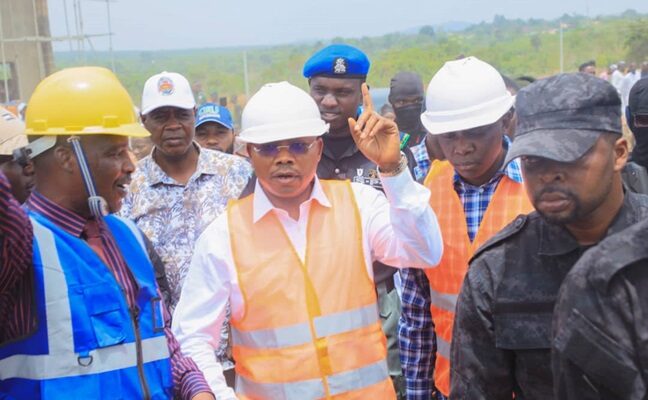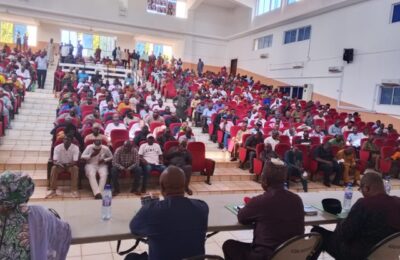Agriculture remains the backbone of Nigeria’s economy, with the bulk of the nation’s food supply originating from rural communities. These areas are predominantly agrarian, with farming serving as the primary livelihood for the inhabitants. However, one of the major challenges facing rural communities across the country is the lack of accessible roads, which hampers the efficient transportation of agricultural produce to urban markets. This infrastructural deficit has a ripple effect, leading to economic stagnation, low quality of life, and the absence of essential amenities such as telecommunication, internet access, and other critical utilities necessary for modern living.
For years, Kogi State was not exempt from these challenges. However, a significant shift began in 2016 when former Governor Yahaya Bello took a community-driven approach to governance. His administration actively engaged rural dwellers to identify their most pressing needs, which formed the foundation of the New Direction Blueprint. Through extensive consultations, it became clear that access to quality healthcare, clean water, and good roads were among the top priorities for rural residents. In response, the Bello administration aggressively implemented infrastructural projects, rehabilitating healthcare facilities, improving rural water supply, and investing heavily in education. Additionally, township and inter-local government roads were constructed to enhance connectivity and improve economic activities in rural areas.
Building upon this foundation, Governor Ahmed Usman Ododo has taken a bold step in prioritizing rural road construction across all 21 local government areas of Kogi State. Since assuming office, his administration has embarked on the construction and rehabilitation of key road networks in Kabba, Yagba West, Yagba East, Lokoja, Omala, and several other communities. Recognizing the importance of strategic partnerships, the Kogi State Government, in collaboration with the World Bank, has launched several critical rural road projects under the Rural Access and Agricultural Marketing Project (RAAMP).
Kogi State holds a unique position as one of Nigeria’s leading producers of key agricultural commodities. It is the highest producer of cashew and cassava in the country, with significant production of maize, millet, sorghum, groundnuts, melon, sesame seeds, yams, and palm oil. However, without an efficient road network, farmers and traders face immense difficulties in transporting these goods to larger markets, thereby limiting economic growth and profitability.
As the farming season approaches, Kogi State is witnessing an unprecedented transformation in rural infrastructure through the Kogi State Rural Access and Agricultural Marketing Project (Kogi RAAMP). This World Bank-partnership initiative is designed to enhance rural connectivity and improve market access, thereby fostering economic development at the grassroots level. To ensure the success of this transformative project, Governor Ododo has committed to the counterpart funding, reinforcing the government’s dedication to rural development.
Revitalizing rural markets as game-changer for agricultural trade,a key component of Kogi RAAMP is the development of major rural markets to facilitate trade and commerce. In line with this, three major markets have been identified for significant upgrades across the three senatorial districts of the state: Ajaka Market in Kogi East, Aku Market in Kogi Central and Aiyegunle Market in Kogi West.
Each of these markets will receive an investment of no less than ₦1 billion, underscoring the state government’s commitment to boosting trade, empowering local businesses, and improving the rural economy.
To complement the market development initiatives, the Ododo administration has also awarded numerous rural road projects under the RAAMP initiative aimed at enhancing mobility and accessibility. These roads will ensure that farmers can efficiently transport their goods while also enabling rural residents to access essential services with greater ease.
Some of the key road projects in Kogi East Senatorial District include: Ayingba to Agala Atte Road, Elubi Etiaja to Ulaja, Ojaji/Ogodu Road, Iyale/Ajachaja/Odolu road, Ogbabo/Ojoto Road, Ajekela/Ajeguna/Abocho Road, Odu Ogboyagba/Odu Ogegele Road, Olubojo/Ojogba/Abocho Road, Ebeje Uwala/Ebeje Abolika/Ebeje/Erabo Road all in Dekina LGA. Others are Odidoko/Ugbamaka/Emapke road, Ibada/Akpacha road, Efekpe/Ogolale Road in Olamaboro local government area. Also Ejule/Okabo road, Ala/Agala/Agoh Road, Agregba/Itobe Road, Itobe/Eteh/Alabi Road, Emi Maji/Itobe road, Exeter/Otobe/Utobo/Anaji Road. Other rural roads awarded for construction includes Obakolo/Okenya road, Umuchina/Nokwa/Amaoba Road, Imere/Junction /Akpa/Ibocho Road in Igalamela/Odolu local government areas of the. Ega/Market road, Iyogbo/Okpachala roads in Idah local government areas of the state were also included.
The implementation of these projects is already in full swing, with several contractors mobilized to site, while others are preparing to commence work. This rapid execution is a proof to Governor Ododo’s unwavering commitment to infrastructural development and his administration’s resolve to bridge the rural-urban divide in Kogi State.
By enhancing road networks and market infrastructure, Kogi State is laying the foundation for a more prosperous and economically vibrant future. As these projects unfold, rural communities will witness significant improvements in trade, agriculture, and overall living standards. The ultimate goal is to ensure that no community is left behind in the journey toward sustainable development and economic empowerment.
ONOGWU Muhammed, ANIPR
Special Adviser to the Governor on Public Relations
7 February 2025




